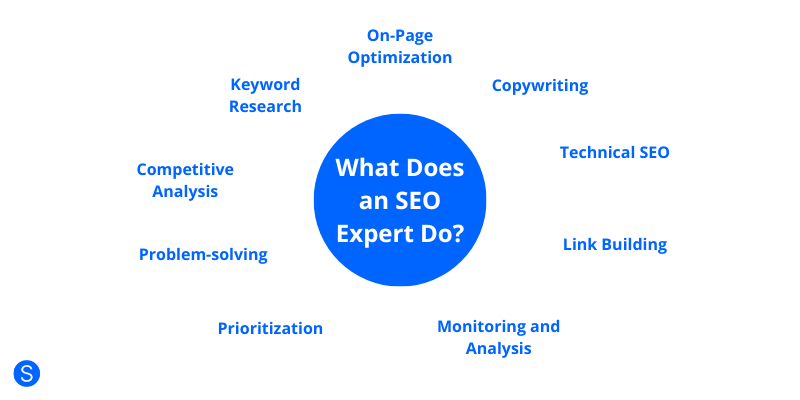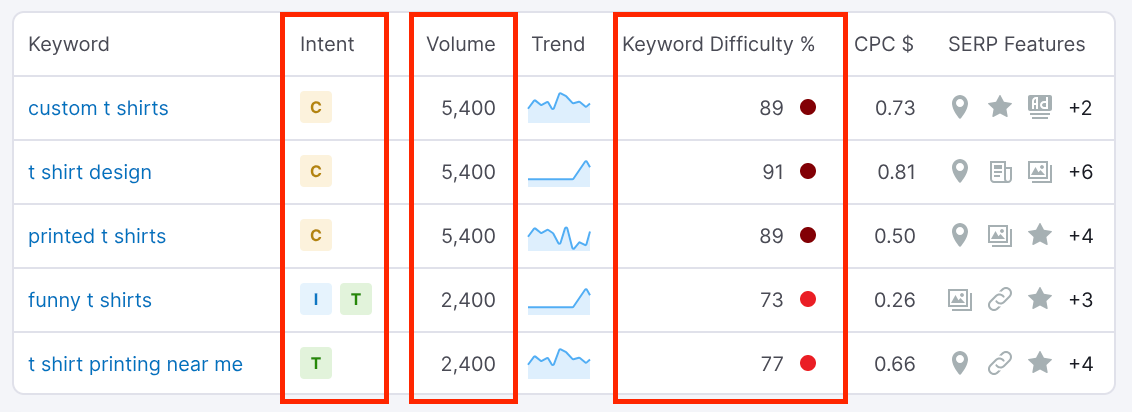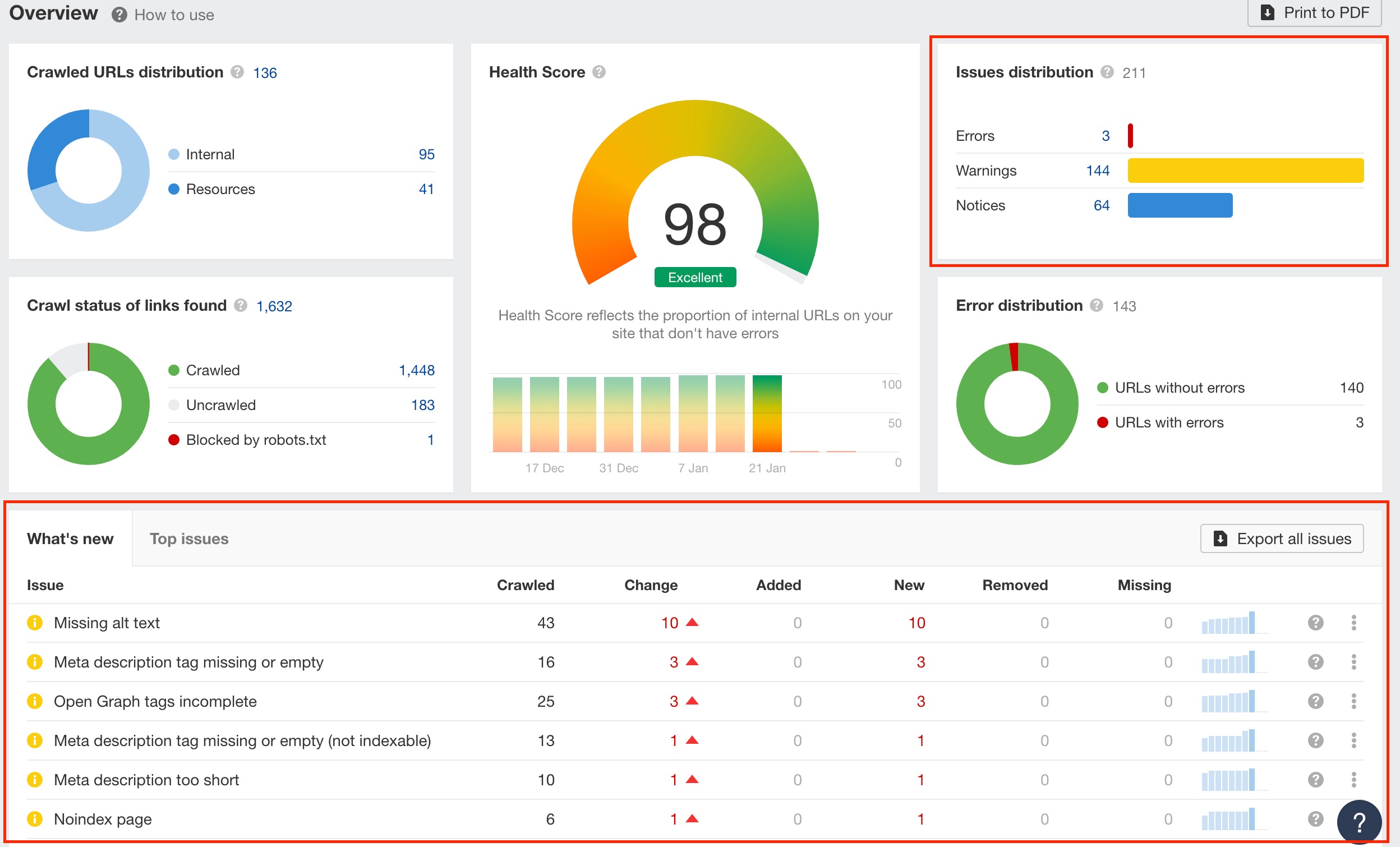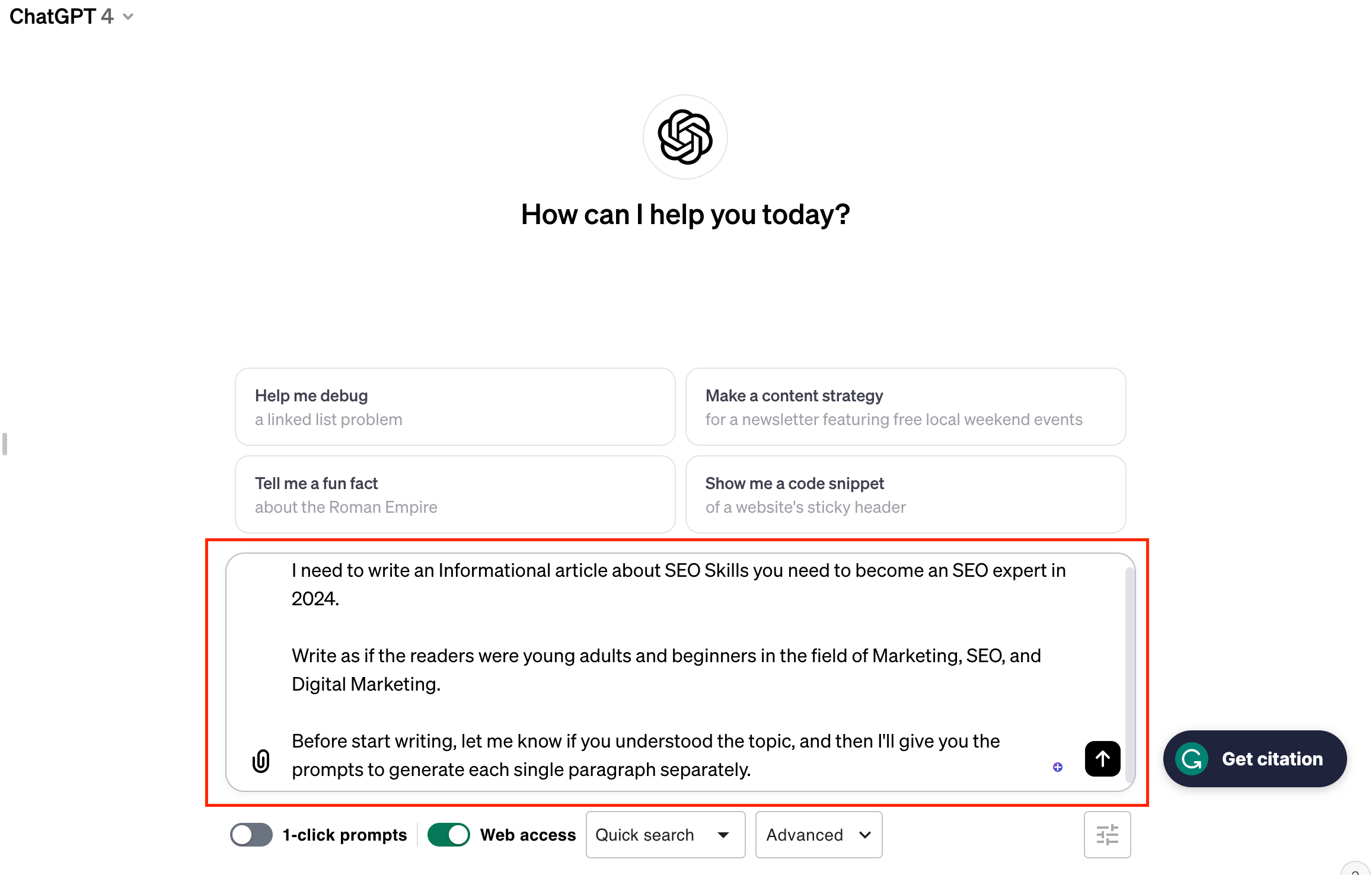If you want to pursue a career in SEO (search engine optimization), you should know that the essential skills needed to become an expert in the SEO industry can vary a lot.
This is because, typically, SEO professionals come from many different fields, from marketing to copywriting to programming.
This means that you might be more inclined to do certain things than others, but in general, SEO experts need to master some basic skills to be fully independent in their jobs.
As with any other job, there is some technical knowledge and some soft skills that you should have.

Technical SEO Skills
Technical skills in SEO are specific abilities crucial for effectively optimizing websites.
They’re gained through education, training, or hands-on experience.
Think of them as tools in your SEO toolkit, each skill fine-tuned for particular tasks like keyword research, understanding technical SEO, on-page optimization, link building, and mastering various SEO tools.
Keyword Research
Keyword research is all about pinpointing the right keywords, both long and short-form, that your audience uses.
Finding the best keyword is crucial for ranking higher in search engines because it’s not just about guessing.
This SEO skill requires a strategic understanding of keyword metrics and users’ search intent.

Here’s how to do keyword research in 5 steps:
- Generate Keyword Ideas: Start by brainstorming. What topics are relevant to your brand? What might your customers be searching for?
- Group Keywords by Search Intent: Is your audience looking to buy or just seeking information? Group your keywords accordingly.
- Analyze Keywords Data: How often are these keywords searched? What’s the competition like?
- Analyze the SERP: Check out the current search engine results page. Who’s ranking high with your chosen keywords?
- Prioritize Keywords: Finally, choose which keywords are most valuable for your strategy.
Technical SEO
Technical SEO is the backbone of a website’s visibility and user experience.
It involves optimizing a website’s technical elements to ensure search engines can crawl, index, and render it effectively.
Technical skills are the foundation because, without a solid technical base, even the best content might not perform well.
The Essential Elements you should monitor for Technical SEO are:
- Core Web Vitals: Crucial for site speed and stability.
- Well-structured Website Architecture: Ensures ease of navigation for users and search engines.
- Sitemaps: Guide search engines through your site.
- Schema Markup: Enhances how pages are displayed in search results.
- Robots.txt and Canonical Tags: Manage page visibility and content uniqueness.
Sometimes, it happens that some elements of your site don’t work correctly. This means that you might find broken links, duplicate content, or crawl errors that can hinder your site indexing by search engines.
To find and fix these problems promptly, start by conducting regular Site Audits.
With Site Audits, you can identify any existing issues like broken links or duplicate content.
There are several SEO tools you can use to audit your site; these tools will give you information on how well your site is performing and if there are issues to fix.

Then, make sure your website’s loading speed is good enough for both mobile and desktop.
To check it, use tools like Page Site Speed.
Finally, regularly update your sitemap and Robots.txt to reflect any changes in your site’s structure.
On-Page Optimization
On Page SEO refers to all the on-site actions you can do to boost your rankings on search engines like Google.
Every SEO expert should, in fact, know how to:
- Write High-Quality Content: Content is king. You should be able to produce useful content that can actually help users by giving them solutions to their questions.
- Optimize for Featured Snippets: Aim to get your content featured right at the top of SERPs for increased visibility.
- Use Meta tags: Craft meta descriptions that are clear, enticing, and aligned with what your audience is searching for.
- Use SEO-Friendly URLs: Ensure your URLs are concise, readable, and keyword-rich.
- Optimize Images: Compress and properly tag images to improve page load times and SEO.
- Optimize Internal Links: Use internal links to help search engines discover new pages and understand the structure of your site.
Related: on-page seo checklist
Link Building
Link building is an essential part of an off-page SEO strategy; it is, in fact, considered one of the most important ranking factors.
This is why it is one of the most valuable SEO skills you can have.
These backlinks significantly boost your site’s authority both in the eyes of search engines and users.
They not only boost your site’s visibility but also help search engines understand what your site is about.
Also, when Google follows a backlink to your site, it doesn’t just stop there; it may crawl the page, and if it finds any internal links on it, it might index more of your content.
What are some popular link-building techniques?
- Guest Posting: Contribute quality content to other websites and include a link back to your site.
- Digital PR: Create newsworthy stories about your business and reach out to journalists or bloggers.
- Broken Link Building: Identify broken links on other sites and suggest your content as a replacement.
- Media Outreach through HARO: Use platforms like HARO (Help A Reporter Out) to connect with journalists looking for expert opinions in your field.
SEO Tools
Familiarity with SEO tools is vital, especially if you’re working on multiple projects.
With these tools, you can track and analyze your SEO performance, automating processes that would otherwise be time-consuming.
Each tool has its unique strengths, but they generally offer similar functionalities – like keyword research, backlink analysis, and traffic insights.
Once you master one of them, you’ll find the learning curve to use others significantly lower.
Remember, it’s about understanding the core concepts; the interface might change, but the underlying principles remain the same.
Copywriting
SEO copywriting is where the art of persuasive writing meets the technicalities of search engine optimization.
It’s a skill that goes beyond merely inserting keywords into text; it’s about crafting content that captivates human readers while simultaneously satisfying search engine algorithms.
But what is SEO Copywriting, and why is it an important SEO skill?
- Enhances Search Engine Rankings: Effective SEO copywriting ensures content is not only keyword-rich but also relevant and valuable. This aids in improving a website’s search engine rankings.
- Resonates with the Audience: It’s about striking a chord with your readers. Good copywriting addresses their questions, engages their interest, and nudges them towards desired actions, all within the realm of SEO best practices.
- Crafts Compelling Headlines and Meta Descriptions: These elements are crucial. A compelling headline grabs attention, and a well-thought-out meta description gives a snapshot of what the content is about, both crucial for enticing readers and aligning with search engine expectations.
- Boosts Conversion Rates: Well-executed SEO content isn’t just about attracting visitors; it’s about converting them. By providing the information they seek and guiding them towards actions like purchases or newsletter sign-ups, effective copywriting turns readers into customers.
AI Tools
AI Tools save you a significant amount of time to focus on more strategic elements of your daily work.
With these tools, you can automate tasks like copywriting, keyword research, content optimization, and technical SEO audits.
This is why it’s crucial to learn how to use AI to our advantage.
Most of the time, these tools are pretty simple and intuitive to use.
Sometimes, they need to be fed by specific instructions in order to generate exactly what you need.
And this is exactly where everybody is getting stumped on.
These instructions are called Prompts – like the instructions you give to ChatGPT.

Actually, they are not complicated to create, but most of the time, we assume that these AI tools are more clever than we think, so we become lazy and don’t feed them with enough information to generate a satisfying outcome.
How can we give the right Prompts to these AI tools in order to get the help we need and automate boring processes?
There are 2 ways:
- Look for prompts on the internet – It’s full of it! Steal other people’s prompts and customize them to obtain what you need;
- Create your own prompt – It’s not difficult; you only need to be very specific about everything you want (tone of voice, length, type of language, etc…).
Soft Skills
Soft skills are personal qualities like how you handle conversations, adapt to changes, solve problems, and generally get along with others.
Because SEO isn’t just about algorithms and keywords; it’s about understanding client needs, effective communication, and teamwork.
Communication Skills
For an SEO professional, having strong communication skills is crucial.
Think of it this way: SEO can be complex and technical, right? So, if you’re in this field, you need to be able to break down these complex SEO topics into simpler terms that your clients, who might not be SEO-savvy, can easily understand.
Whether it’s through reports, presentations, or just casual chats, your ability to clearly and effectively communicate can set you apart.
This is especially true if you’re a freelance SEO expert.
Your success hinges not just on your SEO skills but also on how well you can build and maintain client relationships through clear, concise, and effective communication.
Adaptability
Think about it – search engine algorithms are always evolving, right? So, your SEO knowledge and strategies need to evolve, too.
You’ve got to be ready to switch things up when website updates throw a wrench in the works or when Google decides to change its algorithm overnight.
It’s all about being flexible and quick to react.
Can you tweak your SEO strategy on the fly? That’s adaptability.
It’s essential because what works today in SEO might not work tomorrow, and staying ahead means being able to adapt fast and effectively.
Problem-Solving
Problem-solving skills are like your secret weapon when things don’t go as planned.
Maybe your website traffic drops unexpectedly, or a Google update throws your rankings off.
This is where problem-solving kicks in.
It’s not just about fixing what’s broken; it’s about digging deep to understand why it broke in the first place.
You analyze the situation, break down the problem, and come up with a solution that not only fixes the issue but also prevents it from happening again.
Critical thinking
Critical Thinking is another essential skill for SEO professionals.
It comes down to analyzing situations and strategies with a clear, unbiased mind.
Imagine you’re faced with a new SEO challenge or a new project – how do you decide what to do? That’s where critical thinking comes in.
You look at the facts, weigh different SEO claims, and then make a decision that’s based on solid analysis, not just a gut feeling.
It’s about being smart and savvy, questioning everything before accepting it as truth.
Persistence
When you’re persistent, you keep learning, no matter the setbacks.
You push yourself to improve constantly.
It’s about collaborating with others, sharing insights, and working together towards the success of your projects.
True persistence means you’re in it for the long haul, adapting and growing with each challenge.
Time Management and Prioritization Skills
Time management and prioritization are key for SEO specialists.
Let’s face it: in the world of SEO, there’s always a ton to do. Employers look for SEO professionals who can do multiple tasks effectively.
Why? Because the ability to stay organized boosts efficiency and results.
It’s not just about doing things; it’s about doing the right things at the right time.
Not all tasks are created equal, and understanding which ones deliver the most bang for your buck can make a big difference.
This means identifying those tasks that are low in difficulty but high in impact.
Also, when you manage your time well, you’ve got the space to think and analyze the impact of your actions.
This isn’t just about ticking off tasks on a to-do list; it’s about making informed, strategic decisions that propel your campaigns and, ultimately, your business forward.
Frequently Asked Questions
Do I need coding skills for SEO?
No, programming skills are not a necessity for SEO, but having a basic understanding of HTML can help you a lot.
For instance, knowing what a TITLE tag or an ALT attribute is and how to use them can optimize your website’s SEO performance by making key elements like images and page titles more search-engine friendly.
Can a beginner learn SEO?
Absolutely, a beginner can learn SEO.
The internet is full of free resources that you can use to learn and apply SEO techniques.
These are my favorite channels:
- Backlinko‘s Blog has a lot of information on link-building strategies and SEO optimization.
- Semrush‘s Blog is another fantastic resource that dives into the nuances of SEO, SEM, and content marketing.
- Hubspot’s Blog provides in-depth guides and tips on marketing, including SEO strategies.
- Additionally, Adam Enfroy’s YouTube Channel has a lot of content that breaks down SEO for blogs.
Is SEO a demanding skill?
Absolutely, SEO is really in demand right now.
A lot of businesses are looking for people who know how to improve their online visibility and get more website traffic.
So, if you’re an SEO specialist, analyst, or digital marketing manager, there’s a good chance companies will be interested in your skills.
This is because more and more businesses are going online, and they all want to be noticed.
As the internet world keeps changing, being good at SEO is only going to become more important. It’s a skill that’s worth having!





